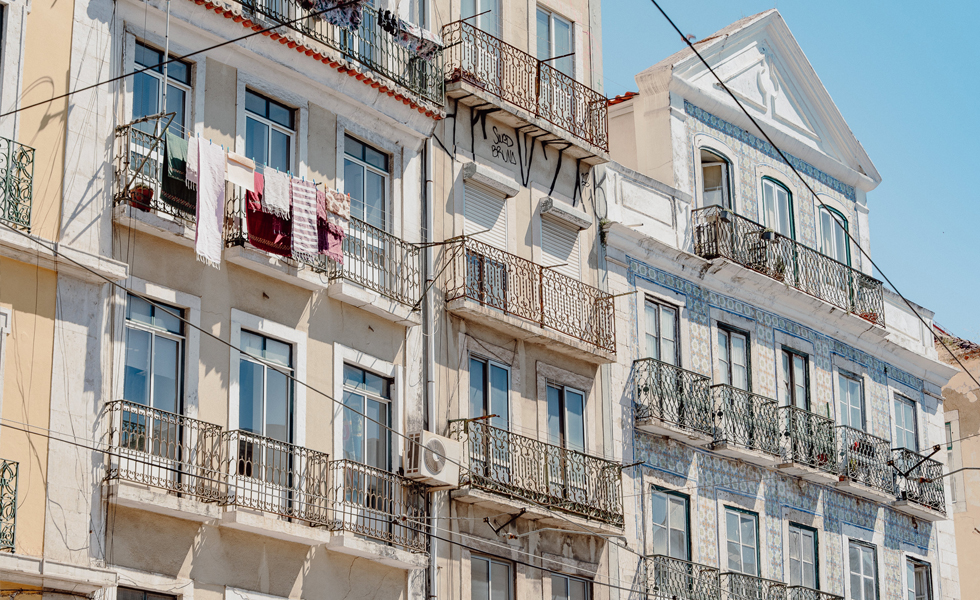“More Housing” Package (Pacote “Mais Habitação”) – Beyond the haze

January 25, 2024
Opinion piece by João Mota da Costa published [in Portuguese] in the Vida Judiciária magazine in January 2024.
The “More Housing” Package, which is part, among others, of Law no. 56/2003, was published on 6 October and came into force on the following day. This widely publicised and intensely scrutinised piece of legislation contains, in addition to the issues that occupied the public discussion spaces, a series of other measures which, while pursuing the (same) objective of mitigating the transversal problem of Portuguese society in regards to the conditions of access to housing, focuses instead on funding and investment aimed at the construction and reconstruction of housing to be placed on the rental market in the form of affordable rentals.
Therefore, this legislation creates a series of mechanisms that, with the prospective of boosting the rental market in previously controlled terms, have the ultimate aim of creating direct and indirect incentives for the construction, rehabilitation and operation of real estate.
The first of these mechanisms consists of two types of support, (1) a line of funding for private individuals and (2) the transfer of public land and buildings to private individuals with the prospective of promoting affordable rental housing.
As far as the line of funding is concerned, the idea is to provide a line of funding, with a mutual guarantee and interest rate subsidy, for projects in the area of affordable housing, whether construction or rehabilitation, including, within this context, the acquisition of properties for this purpose and subsequent rental. This will involve €250,000,000.00 (two hundred and fifty million euros), to be made available and promoted by Banco Português do Fomento. The terms and conditions of access to this line of funding will be regulated by an ordinance issued by the members of the Government responsible for the economy, finance and housing departments, following a proposal from the Banco Português do Fomento and the Instituto da Habitação e da Reabilitação Urbana, I.P. (Housing and Urban Rehabilitation Institute).
Subsequent sales of housing built using this funding are limited to the parameters and values in force for controlled-cost housing, namely with regard to the development cost per square metre, and the rent price is set under Decree-Law no. 68/2019 of 22 May, which creates the Affordable Rent Programme and establishes the conditions for its application.
Housing built or rehabilitated using this funding, if it is to be rented out, will be subject to the conditions laid down for affordable rentals for a period of 25 years. After this period, and in the event of a sale, the municipalities and the Housing and Urban Rehabilitation Institute (Instituto da Habitação e da Reabilitação Urbana, I.P.) have the right of preference to purchase said housing, at a price calculated in accordance with the legislation applicable to the promotion of housing at controlled costs, reported on the date of completion of the project and updated by the monetary correction factor.
The second mechanism is the possibility of transferring public land and buildings to private individuals with the prospective of promoting and making them available for affordable rent. This allocation of assets is carried out through the transfer of surface rights, for a maximum period of 90 years, the transferability of which, as understood, is permitted as long as the inherent rights and duties are safeguarded, namely the duty to allocate housing to the rental market under the terms and conditions laid down for affordable rental.
In addition to this aspect of financing and the transfer of public land and buildings, Law no. 56/2003 foresees another mechanism that also aims to boost the rental market, with the inherent control and accessibility in terms of costs, this time by funding municipalities to carry out compulsory works. This line of funding, worth €150,000,000.00 (one hundred and fifty million euros), is also promoted by the Banco Português do Fomento, has a mutual guarantee and interest rate subsidy, and is intended to be used for housing whose intervention by the municipality was legitimised under the Legal Regime of Urbanisation and Building, on account of health, safety, and conservation, with this intervention being aimed at rehabilitating housing so that it can be placed on the market for affordable rent.
On the other hand, and still in terms of the measures that have occupied the public space, but to a lesser extent, Law no. 56/2003 also foresees a series of changes to the tax regime that operate, on the one hand, by penalising, from the point of view of the tax impact, the ownership of vacant properties and the operation of properties for local accommodation activities, while reducing, on the other hand, the impact and tax effort on the allocation or construction of properties intended to be placed on the affordable rental market, with implications for IRS and IRC taxpayers.
In short, with regards to the first objective, it is worth highlighting the 10-fold increase and 20% annual increase in IMI (Municipal Property Tax) for properties or autonomous fractions that have been vacant for more than a year or are in ruins.
And it is also in this context that the extraordinary levy on apartments intended to be operated as local accommodation was created. This contribution is levied on apartments and accommodation establishments intended for this activity. The property’s situation is verified with reference to 31 December of each calendar year, and the rate of this contribution is 15%, with the taxable base consisting of the application of the economic coefficient for local accommodation and the urban pressure coefficient to the gross private area of the residential property on which the contribution is levied.
On the other hand, in order to create an incentive for the allocation and construction of properties for the affordable rental market, the Tax Benefits Statute was amended to provide for a three-year IMI (Municipal Property Tax) exemption for those who buy, build or rehabilitate properties for the affordable rental market. The exemption starts from the date of purchase, but the owner can request its renovation for an additional five years, as long as the conditions for the exemption are fulfilled.
In brief, the objective of Law no. 56/2003 is to control – by reducing – in the specific cases of Lisbon and Porto, the use of real estate for local accommodation activities, considering that these properties have been and are being subtracted from the rental market, while at the same time boosting the construction and rehabilitation of real estate – by encouraging – under the condition that the prices charged, whether for sale or rental, are subject to the limits pre-imposed by the affordable rental and housing programme at controlled costs.
As far as the measures analysed here are concerned, and not doubting that they do in fact translate into benefits and direct support for the controlled dynamisation of the rental market, there is a fear that their virtuality will, in some cases, be undermined by the necessary bureaucracy and streamlining, as well as their (reduced) weighted impact for owners and investors.




